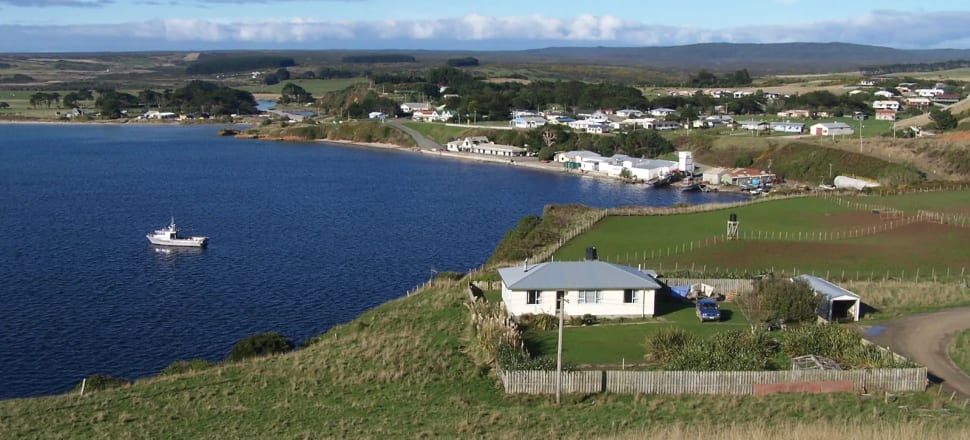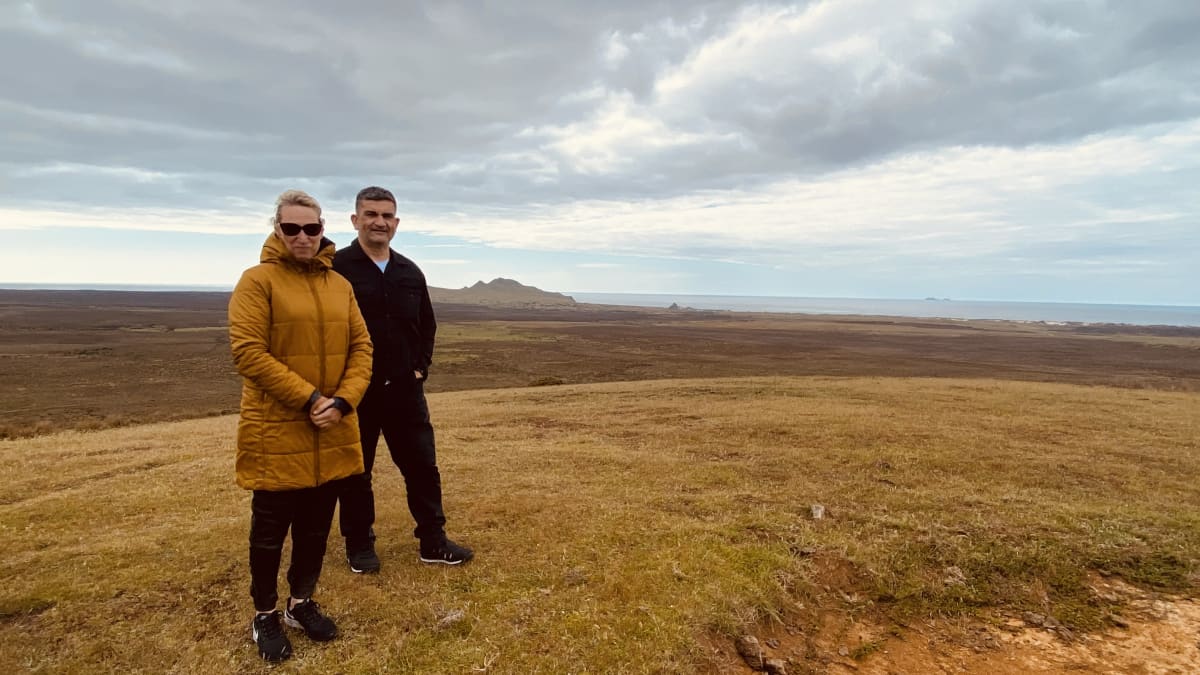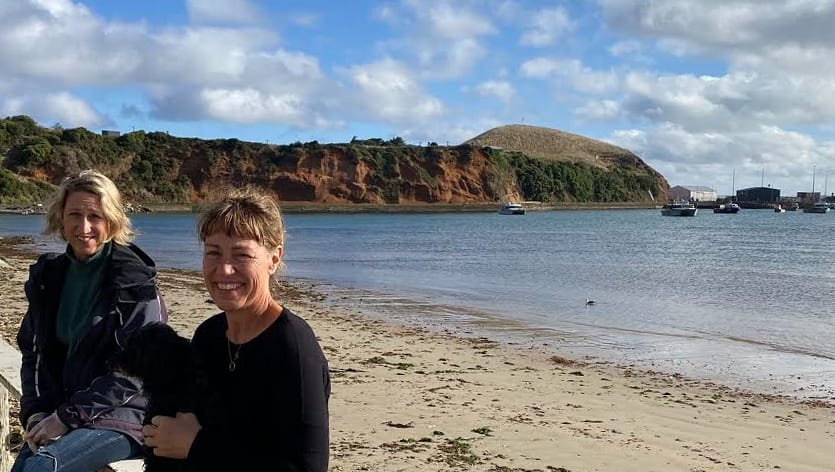
Other small communities should get the same government-funded 'special treatment' as the Chathams, say Opposition MPs.
Eight-hundred kilometres from the mainland, the Chatham Islands are different. When the Govt promises to connect up homes to safe drinking water, it means plonking a 30,000-litre green plastic tank and filter outside many back doors.
And when it delivers the Three Waters reforms to the islands, it's quietly agreed to do so by directly funding their infrastructure – a projected $10m capital spend – rather than handing it over to a big regional water entity.
On learning of the exemption, Opposition MPs are demanding to know why other geographically distinct communities like Stewart Island, Waiheke Island or Coromandel Peninsula can't also be allowed to go their own way.
READ MORE: * Three water CEOs claim salaries despite roles being disestablished * Quick start to Three Waters to save Auckland and Northlanders $1000 * Cash retention payments to stop Three Waters engineers fleeing uncertainty
The Government's previous plan was to move the drinking water, wastewater and stormwater assets from all 67 of New Zealand's councils into the management of four giant regional corporations. The Chatham Islands were to be included with 20 other councils in a giant unwieldy regional grouping.
It would have run from the North Island's East Cape, down through Hawkes Bay and Wellington, across the Cook Strait to include Marlborough, Nelson and Tasman – and across the Southern Ocean to the Chathams.
In the face of protests from many smaller communities, fearful of losing their voice and control over water assets built up over generations, the Government reviewed its plans. On the morning of April 13, Local Government Minister Kieran McAnulty announced there would be 10 mid-sized regional water entities, instead of four giant ones.
What nobody noticed – except community leaders on the Chathams – was that the 10 new entities comprised only 66 councils. One community had been discreetly removed.

Earlier on the morning of April 13, Chathams mayor Monique Croon and longstanding council chief executive Owen Pickles had taken a call from the minister, and their Labour MP Paul Eagle.
Pickles recalls the hour-long conversation – business hours for Chatham Islands, whose clocks are 45 minutes ahead of the mainland, but fairly early in the morning for McAnulty.
What did they think about having their infrastructure funded out of central government, McAnulty asked them, rather than by one of the 10 new water entities he was about to announce?
That makes sense, they replied. "He did talk to us about the options for the Chatham Islands, which included the Chatham Islands remaining on its own, which we thought was a great idea," Pickles says.
Good, McAnulty said, because that's what the Cabinet and I have just decided to do.
"Our circumstances are absolutely unique. And that 800 kilometre stretch of water makes a lot of difference." – Owen Pickles, Chatham Islands Council
"We see that as a win for us," Pickles tells Newsroom. "Because if we'd stayed with a larger entity, the chances are we would probably have just got lost because of our size, up against the bigger players."
Chatham Islands comprises two populated islands: the bigger one is Chatham Island with a population of 660. Its capital Waitangi draws a piped water supply from a bore, run from a 20-year-old water treatment plant. The smaller Kaingaroa fishing village on the northern side of the island pipes water from a lake, through a treatment system that dates back to the 1960s or 1970s. It's overdue for replacement.
The smaller Pitt Island has about 70 residents with their own private household water supplies.
The Government has already announced $500,000 funding, through the National Emergency Management Agency, to fund water tanks for about 50 more remote homes.
Now, McAnulty has agreed it will fund the costs of renewing the drinking water and wastewater infrastructure, which the council projects will require $10m over 10 years. Locals will still pay the operating costs of reticulated water supplies, through user charges.
"Our circumstances are absolutely unique," Pickles says. "And that 800 km stretch of water makes a lot of difference."
After an unsuccessful tilt at the Wellington mayoralty, outgoing Labour MP Paul Eagle has been named to succeed Pickles as Chatham Islands Council chief executive. Eagle sat in on the April 13 phone call.
"Repealing the law would mean a delay for everyone – for the Chathams, it would delay putting in place some of the infrastructure that's needed. We have to do something about water and ... I think we need to get on with it now." – Paul Eagle, retiring Labour MP
"The Chatham Islands will need to ensure the total costs are locked in," Eagle tells Newsroom. "We wouldn't want to have to go back to Government with a begging bowl every year. We wouldn't want to set everything up, and then have the Government renege on the appropriation.
And he says future governments will need to be flexible to dig deeper, if necessary. "Because like anything, once you start digging, you may find that things aren't as good as what you thought. And with cost escalations, we'd need to do some underground infrastructure planning.
"It may not be just $10 million right up front, it might be a bit more. Once the election is over, we can sit down and talk."
The Water Services Entities Amendment Bill was reported back from select committee and debated in Parliament this month – and only then did other MPs realise what had happened.
National's local government spokesperson Simon Watts said the Chatham Islands had been given "special treatment", the right to to choose their own destiny: "The Chatham Islands are now, literally, an island unto themselves," he said. "I guess that's one saving in terms of not having an 11th water services entity with a new CEO and a new bureaucracy and all of that."
But he questioned why other communities like Stewart Island should not be allowed similar exemptions. "How could that be, that what's good for the goose is not good for the gander?"
His colleague Scott Simpson asked the same question of the Coromandel Peninsula, which he represents. "It is – although not separated by water like the Chatham Islands – literally a different geography, a different set of communities, and a different set of issues, needs, and demands, not the least of which is the cyclical nature of peak water demand over the normally good summer periods that we have in the Coromandel."
McAnulty disagreed, pointing out that for a start, Chatham Islands already had its own distinct council and funding arrangements.
"The council has a longstanding unique relationship with central government, where they are directly funded," he said.
"They are directly funded because rates alone can't cover the basics. So there is a record amount of investment from this Government around the wharf, but they also need funding for roading, for simple, basic provisions that other councils can do, but with a small isolated population of 660, the Chatham Islands can't.
"The reason why they haven't been included in the entities is because, after seeking advice on whether it would actually just be simpler to continue and extend the existing direct funding relationship that the Chatham Islands councils have with central government, I deemed that it was actually better for them to just continue that. I put it to them and they agreed. They didn't ask to be excluded."

Hamiora Bowkett, the executive director of the water services reform programme at the Department of Internal Affairs, has been overseeing the policy changes.
"Unlike any other region, the Chatham Islands depends significantly on central government for infrastructure funding, and its residents face substantially higher utility and other households costs than other New Zealanders," he explains. "It was for these reasons that the Government chose to fund water services infrastructure directly, within a more holistic approach to infrastructure investment for the Chathams.
"Cabinet has decided that central government will fund water infrastructure for the Chatham Islands, as it does for all infrastructure in the Chathams currently."
Chatham Islands Council will continue to be responsible for water services, as it is at present under the Local Government Act. The council may choose to contract out those services to one of the 10 water entities in the future, to support delivery or management of water services. "This will be a decision for the council," Bowkett says.
The Water Services Legislation Bill passed into legislation on Wednesday afternoon, after a last-minute ministerial amendment containing detailed provisions setting out how local government legislation would continue to apply to the Chathams.
Bowkett rejects any suggestion this exemption could provide a model for other disaffected small councils. "The decisions taken for the Chathams reflect and align with existing central government support for infrastructure in the Chatham Islands, and recognise the unique challenges the residents of the Chatham Islands have been facing with higher than average household utility costs."
With the final piece of Three Waters legislation passed late on Wednesday night and implementation of many parts of the reforms well under way, does this mean the water reforms are too far progressed for a new government to repeal?
Bowkett answers obliquely – but hints that officials may have to take a pause until after the election. Internal Affairs' focus will now move to implementation, he says, "noting we are in a pre-election period with the conventions expected of the public service".
Paul Eagle says the Chatham Islands would take a pragmatic approach if National were elected to Government, and repealed the water services reforms. "We'd work with it and say, okay, there's been a change. Chatham Islands would have to put a new case to the new government."
"I'd be disappointed, because of all the good work that's gone into it. Repealing the law would mean a delay for everyone – for the Chathams, it would delay putting in place some of the infrastructure that's needed."
"We have to do something about water and there's a compromise that's been put on the table, going from four entities to 10. Lots of people have expressed their views on co-governance, but I think it's been misunderstood. The water entities are still going to be governed by appointed experts. I think we need to get on with it now."
Paul and Miriam Eagle plan to move to the Chathams early in the new year, after their son Tamarangi finishes his school year at Otari School in Wilton. Tamarangi, 8, is a Chatham Islander, whom the Eagles adopted – just as his father Paul, too, was adopted. "It's good that he'll be returning to his people," Paul Eagle says.







